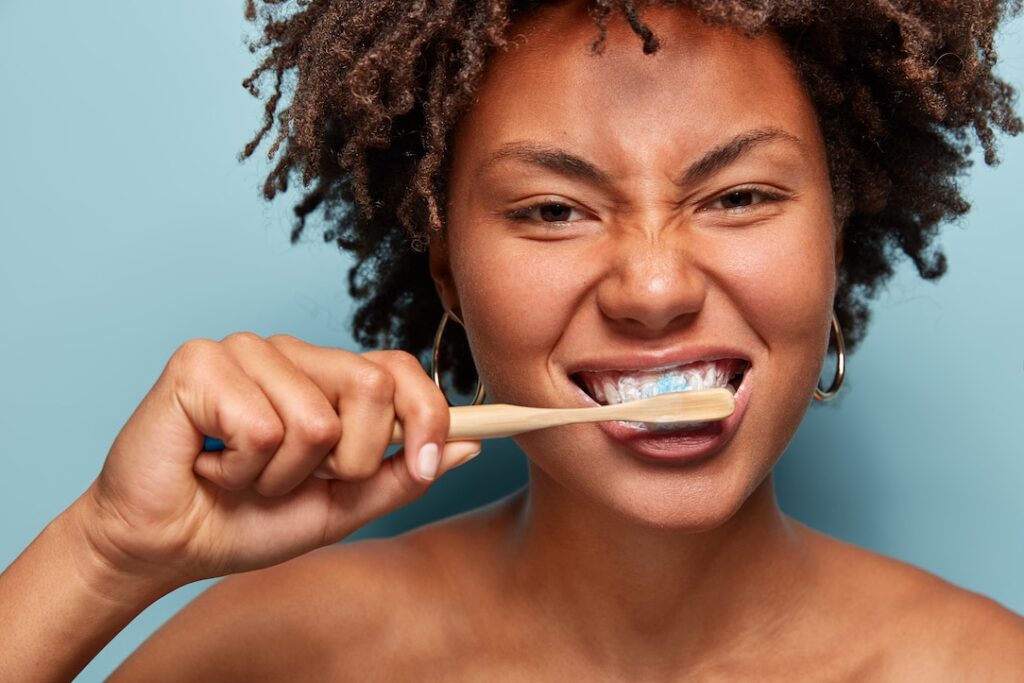Oral health features a lot to try and do with genetics, but you’ll not realize it! Recent research shows that the bacteria present in your mouth are the identical ones present in your parents’ mouths, particularly if they’re associated with you by blood. This implies that there’s an honest chance your oral health and theirs are similar, too.
If one or both of your parents have cavities or gum disease, there’s an excellent higher likelihood that you simply will have them similarly, especially if you aren’t practicing proper oral hygiene habits like brushing and flossing regularly.
(1) What is oral health?
Oral health refers to the health of the teeth, gums, and also the entire oral-facial system. A number of the foremost common diseases that impact our oral health include cavities (tooth decay), gum (periodontal) disease, and carcinoma.
Oral conditions are frequently considered break free other chronic conditions, but these are literally inter-related. Poor oral health is related to other chronic diseases like diabetes and cardiovascular disease. Oral disease is also related to risk behaviors like using tobacco and consuming sugary foods and beverages.
Risk factors for poor oral health include: not visiting a dentist regularly; having untreated dental disease; experiencing high levels of stress or depression; using tobacco products; consuming sugary foods or beverages frequently; having certain medical conditions (such as diabetes); being a victim of violence or sexual assault; and experiencing homelessness.
Oral diseases will be prevented through regular visits to a dentist, practicing good oral hygiene reception, healthy eating habits, avoiding tobacco use, reducing alcohol consumption when possible, and reducing stress levels by participating in activities that promote emotional well-being.
(2) Why do people think dental problems are hereditary?
There are such a large number of cases like misaligned teeth – also called malocclusion – it’s usually because of your jaw’s shape, which is an inherited trait. Malocclusion can make your bite uneven and your teeth overcrowded, resulting in several dental health complications.
You may find it hard or uncomfortable to chew, and bacteria can take hold within the hard-to-reach nooks and crannies created by the overcrowded teeth, increasing your risk of decay and cavities.
So, if you’ve ever proscribed misaligned teeth or had to induce braces to correct them, you’ll thank dear old mom and pap. But don’t be too hard on them. They inherited their teeth rather like you!
(3) Does genetics play a task in oral hygiene?
The answer is Yes. Although the ADA notes that oral health isn’t an inherited trait like eye color or height. Recent research has also identified a possible genetic link to caries. Specifically, it’s been found that specific variations of the beta-defensin 1 gene (DEFB1) can increase the danger of caries. Like gum disease, good oral hygiene is one effective ways to prevent dental caries.
What’s more, your parents can certainly have a task in that: in the end, bad oral hygiene habits tend to be passed down from generation to generation. There also are certain genetic conditions that may affect your teeth in other ways (e.g., congenital disorder and palate).
(4) The Best Tips for Preventing Dental Issues
There’s a standard misconception that oral health is genetic. That’s because it’s been well-documented that some cases of caries and gum disease run in families, but dental issues aren’t always inherited. This is sensible once you consider that oral health is influenced by multiple factors, like your diet, personal hygiene habits, genetics et al.
For example, if you’re genetically predisposed to getting cavities or gum disease, but eat a healthy diet low in sugar and ensure to floss daily after brushing, there is a good chance you’ll be able to keep those problems at bay entirely.
Here is the information that you simply can follow:
- Avoid sugary foods and drinks. If you’re trying to avoid stains on your teeth, it’s an honest idea to drink liquids through a straw and maintain proper oral hygiene habits like brushing twice daily and flossing a minimum of once daily.
- Brush your teeth twice each day. additionally, not changing your toothbrush often enough can cause bacteria and calculus to spread from brush to brush. An honest rule of thumb is to interchange your toothbrush every three months, or after you’ve had a chilly or flu.
- Floss your teeth once every day. Flossing may also help reduce food buildup along your gums and in between teeth. As you begin flossing daily, you’ll begin to note a difference in your oral health within some weeks.
- Use mouth rinse once on a daily basis. Mouthwash can freshen your breath.
- Avoid smoking, chewing tobacco, and alcohol. Smoking causes xerostomia which weakens solid body substance, leaving you vulnerable to bacteria growth and cavities caused by acids attacking your tooth structure from within your mouth.
- See your dentist every 6 months for a viva and teeth cleaning. it’s always the simplest idea to ask advice from professional dentists

